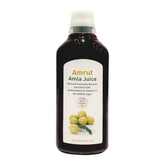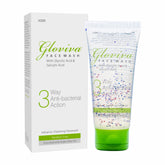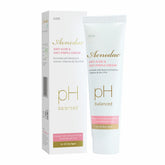
How to take care of oily skin?
Wondering how to take care of oily skin?
Ahh, where do we start?
The thing about oily skin though, is that there is no one definite reason for that extra slick of oil on your face. If you have oily skin, it implies that your skin has overactive sebaceous glands that produce more oil than you need. A number of times it’s caused due to climate changes, hormones, genetics, diet, stress—or even by using the wrong skincare product. Not to forget the times when your skin gets dehydrated and to compensate the loss of oil, it starts overproducing excess oil. Result? Enlarged pores that are prone to acne, breakouts and blackheads. What a nightmare!
Well, just because you have oily skin, doesn’t mean you can’t do anything about it. First things first, rather than following what everyone else is doing, determine what works for you. Avoid using random products (which might aggravate your situation further) and stick to tried-and-tested oily skin products. Although oily skin can clog pores and lead to increased acne breakouts, oily skin also has many benefits. Oil helps preserve the skin, and people with oily skin tend to have thicker skin and fewer wrinkles. The key is to strike a balance between having too much oil and maintaining your skin’s natural moisture.
To help control oily skin, here are some dermatologists recommend the following tips:
- DO wash your face every morning, evening, and after exercise.
While washing, resist the temptation to scrub your skin, even to remove makeup. Scrubbing irritates your skin, which can make it look worse.
- DO choose skin care products that are labeled “oil free” and “noncomedogenic.”
This means that products that have these labels — including cleansers, moisturizers and makeup — won’t clog your pores or cause acne.
- DO use a gentle, foaming face wash.
Many people believe that they need to use a strong face wash for oily skin in order to dry out their skin. However, using a face wash that is too harsh can irritate your skin and trigger increased oil production. Instead, look for a mild, gentle face wash.
- DON’T use oil-based or alcohol-based cleansers.
These can irritate your skin.
- DO apply moisturizer daily.
Although you have oily skin, it is still important to apply moisturizer to keep your skin hydrated. To save time and protect your skin from the sun’s harmful ultraviolet rays, look for a moisturizer that also contains a broad-spectrum sunscreen with an SPF of 30 or higher.
- DO wear sunscreen outdoors.
Sunscreen helps prevent sun damage that could lead to wrinkles, age spots and even skin cancer. To prevent acne breakouts, look for sunscreens that contain zinc oxide and titanium dioxide, and do not use sunscreens that contain fragrance or oils.
- DO choose oil-free, water-based makeup.
- DON’T sleep in your makeup.
Always remove all makeup before going to sleep.
- DO use blotting papers throughout the day.
Gently press the paper against your face and leave it on for a few seconds to absorb the oil. Don’t rub the paper on your face, as this will spread the oil to other areas.
- DON’T touch your face throughout the day.
Although it’s tempting to touch your face, doing so can spread dirt, oil and bacteria from your hands to your face. Only touch your face when you’re cleansing, moisturizing or applying sunscreen or makeup, and make sure your hands are clean first.


